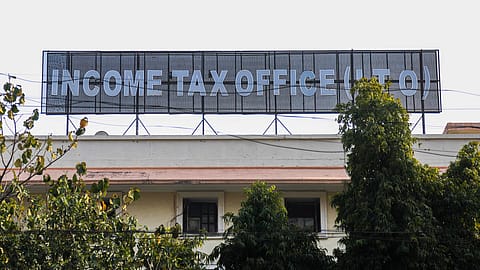Budget 2023: EY India suggests nil tax on income up to ₹5 lakh under new regime
The new concessional tax regime will become attractive for the tax payers if income up to ₹5 lakh annually is exempt from taxation, says EY India.

As part of its pre–Budget recommendations, EY India has suggested nil taxation on income up to ₹5 lakh in the concessional tax regime introduced in the Budget 2020-21. The new tax regime without exemptions and with moderate tax rate came into effect April 1 2020 but has failed to take off due to low taxpayer interest in it.
The tax consultancy firm is of the view that the new concessional tax regime will become attractive for the tax payers if income up to ₹5 lakh annually is exempt from taxation by merging the exemption granted to annual income up to ₹2.5 lakh and offering deductions up to ₹2.5 lakh. For the purpose of deduction, the consultancy proposes the limit to be enhanced by merging section 80C/CCC/CCD/D and some other sections. It also suggests retaining the standard deduction of ₹50,000.
"The government had introduced the concessional tax regime effective 01 April 2020 under Section 115BAC of the Income-tax Act, 1961 as a first step for eventually moving towards a tax regime of low/moderate tax rate without exemptions and deductions. It appears the CTR is not very popular and very few individual taxpayers have opted for it," EY India said.
"In order to make the CTR more attractive for individual taxpayers, benefits can be considered in the CTR which will help in bringing one tax system embracing the merits of both (normal tax regime and CTR)," it said.
"Provide the benefit of section 80C/CCC/CCD/D deduction up to ₹2,50,000 but limited to provident fund (including PPF) and qualifying life insurance products, interest on housing loan (presently covered by section 80C), pension policies (presently covered by s.80CCC) and employees/self-contribution to New Pension Scheme (presently covered by section 80CCD(1)/(1B) and mediclaim insurance (presently covered by section 80D)," EY India added.
EY India, meanwhile, clarified that while the present scope of Section 80C is very wide and covers a gamut of insurance, savings, expenditure, among others under the proposed CTR, its scope may be reduced to PF/PPF, qualifying life insurance products and interest on housing loan.
The rationale behind retaining the above, according to the tax consultancy firm, is the absence of universal social security benefit to all citizens of India, regardless of the level of income in view of which middle and high income earners need to provide for their own security. "The tax deduction results in much lower outgo/expenditure for the government in providing for such benefit without significantly impacting the object of CTR of having a lower tax rate without exemptions/deductions," EY India said.